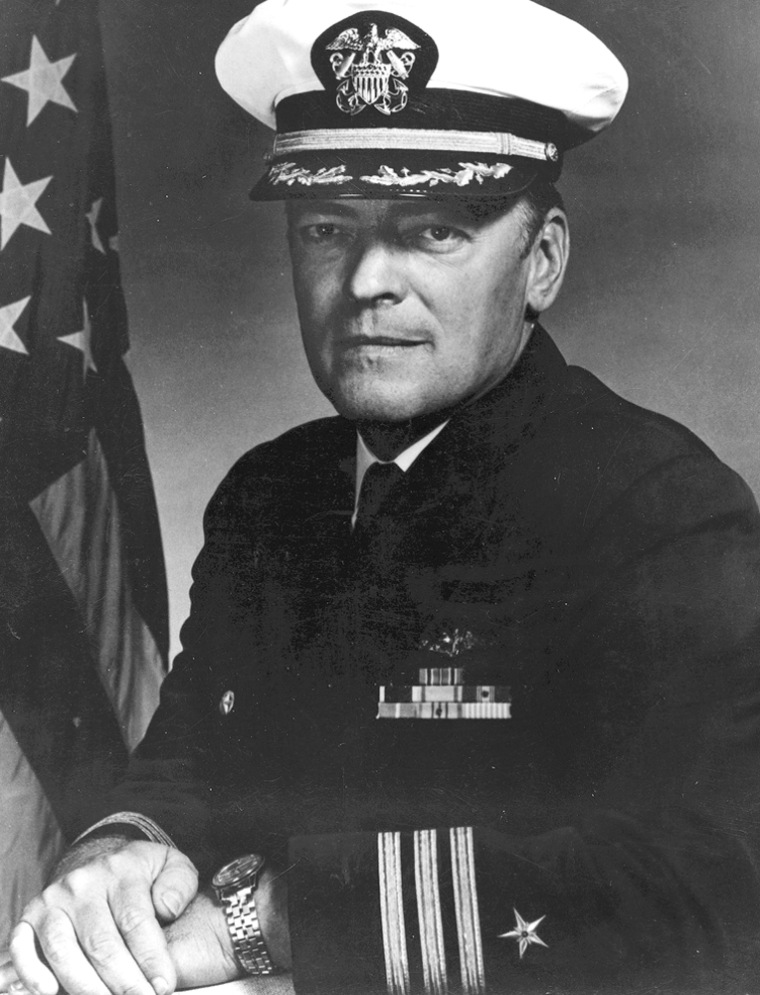Former Navy Cmdr. Lloyd “Pete” Bucher, who commanded the spy ship USS Pueblo when it was captured by North Korea in 1968 and helped his crew survive months of brutal captivity, only to nearly face a court-martial back home, has died. He was 76.
Bucher, who lived in San Diego, died Wednesday evening at a nursing facility in suburban Poway. He had been in declining health for months, partly the legacy of his captivity, said Stu Russell, who served under Bucher and is president of the USS Pueblo Veterans Association.
The lightly armed Pueblo was monitoring communist ship movements and intercepting messages in international waters near the North Korean coast when it was attacked by torpedo boats Jan. 23, 1968.
One sailor was killed and 82 were taken prisoner. Bucher, who was wounded when the Pueblo was shelled, was beaten and tortured into signing a confession. During their captivity, crew members said, they were beaten with pieces of lumber, burned on radiators and had their teeth kicked out by North Korean soldiers.
Survivors remember
“The man was a giant,” Russell said from his home in Eureka, Calif. “Being the focal point between the Koreans and the crew, he took the brunt of everything. No matter who did what, he was always punished. I simply don’t know where he got the strength and courage to go through what he did.”
After 11 months, the crew was released two days before Christmas, some of them crippled or nearly blind because of malnourishment. The ship remained behind in North Korea, where it became a tourist attraction.
Bucher’s surrender of his small ship, loaded with intelligence information, was harshly criticized by a Navy Court of Inquiry convened in Coronado. The court recommended Bucher face a general court-martial for allegedly failing to defend the Pueblo, allowing the ship to be searched and other offenses.
Navy Secretary John H. Chafee turned down the court-martial, saying crew members “have suffered enough.”
Bucher remained angry that commanders had failed to come to his aid.
“The U.S. at that time had enormous military forces in the western Pacific within five minutes flying time of us,” Bucher told The Associated Press in 1988. “I would have thought something could be mustered to come to our aid. But everybody just forgot we were there.”
In 1989, the Pentagon agreed to give prisoner of war medals to Bucher and the crew. Until then, the U.S. government maintained they were detainees rather than POWs because United States and North Korea were not at war.
